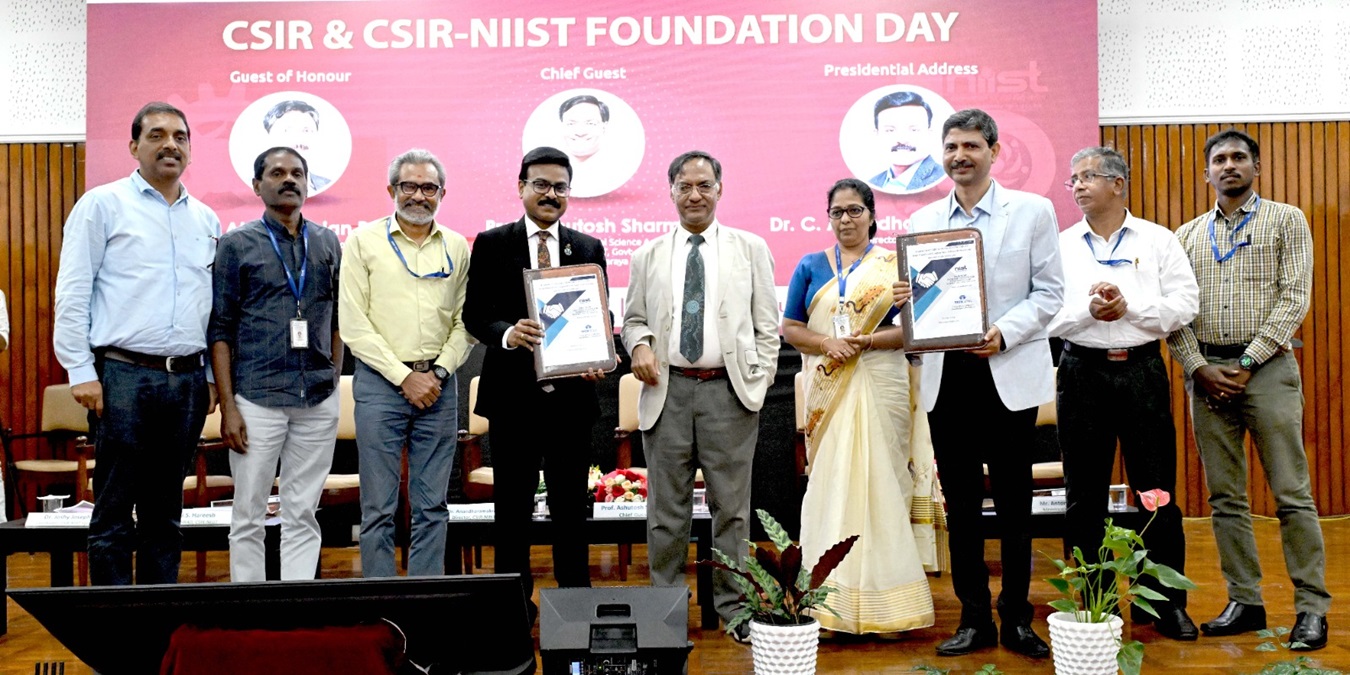

THIRUVANANTHAPURAM:
Taking forward its national mission of developing sustainable technologies with industrial application, CSIR-National Institute for Interdisciplinary Science and Technology (CSIR-NIIST) here has entered into a technical collaboration with Tata Steel Limited (TSL) for the evaluation of its material that helps reduce carbon emission into atmosphere.
The project is part of Carbon Capture, Utilisation and Storage (CCUS)mission of CSIR, which aims to reduce carbon emission by either storing or reusing it so that captured carbon dioxide does not enter the atmosphere.
On its Foundation Day Celebrations held on Monday (October 7), Thiruvananthapuram-based NIIST, an affiliate laboratory of the Council of Scientific Industrial Research (CSIR), exchanged a Memorandum of Understanding (MoU) with TATA Steel Limited, Jamshedpur at the NIIST campus.
NIIST also transferred its technology for converting groundnut shells and corn husk waste into sustainable leather alternatives to M/s Leafy Leather Pvt Ltd, a startup from Surat, Gujarat.
Prof, Ashuthosh Sharma, President Indian National Science Academy, was the Chief Guest at the function, presided over by CSIR-NIIST Director Dr C Anandharamakrishnan. Dr Atanu Ranjan Pal, Chief Technology Officer-Process, TSL addressed the function as the Guest of Honour.
“We are excited to enter into a technical collaboration with Tata Steel Limited for the evaluation of Ceramic Sorbents under conditions of emission from Blast furnace top gas and stove waste gas,” Dr Anandharamakrishnan noted.
NIIST has premiered the efforts to develop high quality leather alternatives from renewable and biodegradable materials, such as agricultural by-products. “The programme is aimed at tackling two pressing global challenges – waste management and the environmental impact of leather production,” Dr Anandharamakrishnan said.
This project has paved the way for transfer of technologies that promote environmental sustainability and economic growth through innovative use of agro-waste resources, he added.
Advanced processing techniques enhance the durability, texture, and aesthetic appeal of the product, making it suitable for various applications, from fashion to automotive interiors.
Committed to reducing the carbon footprint of leather production, Agricultural residues like groundnut shells and corn husks, typically discarded after harvest, will now be upcycled into leather-like materials, providing an alternative to both animal-derived leather and synthetic versions, which are often petroleum-based.
more recommended stories
With each project Parvati Nair takes.
JAMNAGAR: On Sunday, at the Twentieth.
THIRUVANANTHAPURAM: UST, a leading AI and.
BENGALORE:The Bangalore Chamber of Industry and.
MUMBAI:Climate technology, or climate tech, refers.
NEW DELHI: Air pollution levels in.
THIRUVANANTHAPURAM: Collaboration with European Union (EU).
KOZHIKODE:The India-Japan Centre on Climate and.
BUNDI (RAJASTHAN):Marking the occasion of International.
KUTCH (GUJARAT): In a significant step.